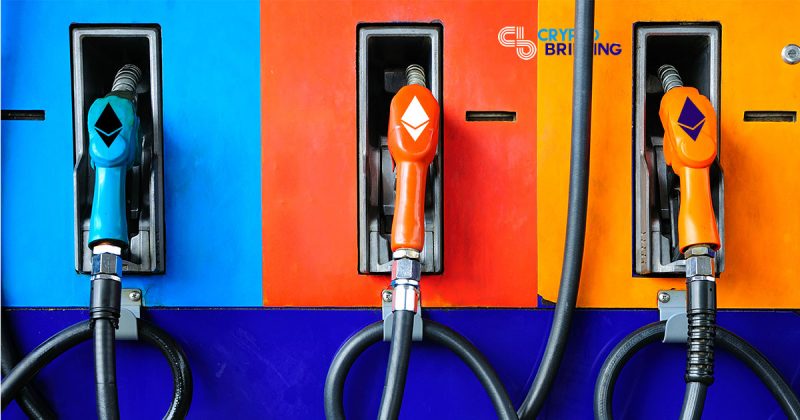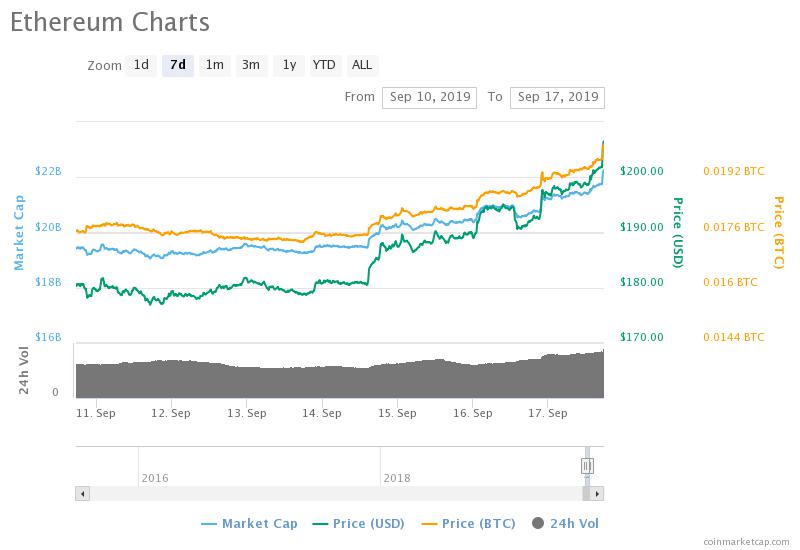
High ETH Prices Are (Finally) Good For Ethereum
Rising computational costs are a mixed bag for ETH adoption
Things are looking pretty bullish for Ethereum (ETH). The Ether price has surged by over ten percent in the past couple of days, and crossed above the psychological $200 barrier earlier this afternoon. That could be a strong buy signal for technical traders, as Crypto Briefing analysts reported yesterday.

How High ETH Prices Harm Ethereum
But what does a high Ether price mean for the smart contract network? There’s an obvious benefit for speculators and miners. But past experience has shown that anyone seeking to build dApps or just use the network could be severely hampered when markets turn bullish.
That’s because the higher ETH prices get, the more expensive it is to use the platform. Users have to pay for everything they do on the network, from smart contract computations to token transfers. Rising gas fees could push end-users onto cheaper alternatives, like EOS or TRON, which offer similar functionality with lower fees.
At least, that’s the received wisdom, which so far seems to be supported by experience. And it’s still technically true today: when it comes to using the ETH network, the downsides of a high Ether price tend to outweigh the advantages.
Does Expensive ETH Mean A Stronger Network?
However, Ethereum is (eventually) transitioning towards a Proof-of-Stake consensus model, which will require a financial commitment in order to participate. Instead of mining blocks through proof-of-work, block-producing nodes will have to stake ETH tokens as collateral in order to validate the network.
That could have a significant impact on Ether’s market dynamics. Stakeholders will risk losing their hodlings if they fail to maintain connected and up-to-date node software. An expensive ETH would provide a strong disincentive to malicious or careless actors on the network.
“If the chain is going to be secure, then there are inherent benefits from having high-valued Ethereum,” explained Nic Carter, Partner at Castle Island Ventures, in an interview with Laura Shin. A high Ether price, he added, would also provide “high-powered collateral, for DeFi applications for instance.”
Carter also pointed out that most networks have become too preoccupied with one or two “glamour metrics,” which may burnish their credentials but do not represent credible advantages.
EOS, for example, has focused solely on scalability at the expense of decentralization. One tradeoff of those high speeds is that EOS relies on a small group of validators, which could present a systemic risk if they decided to collude or otherwise abuse their privileged positions.
Ethereum’s key advantage is that it is the only platform with a vibrant community, Carter added, which comes with an “organic groundswell of usage and development.” Because of that organic usage, investors may be attracted to hold ETH for the long-term.
“I think we noticed a little bit of a recalibration where initially [Ether] was computational gas,” Carter went on to say. “More recently, certain high-profile Ethereans have been saying, ‘well actually Ethereum itself is money.'”
A strong Ether price could still push people off the network, but the community has been exceptionally resilient to market volatility and rival platforms over the past two years. The burgeoning DeFi space, and the added security after transitioning to Proof-of-Stake, could make high prices a net positive for the Ethereum network.
